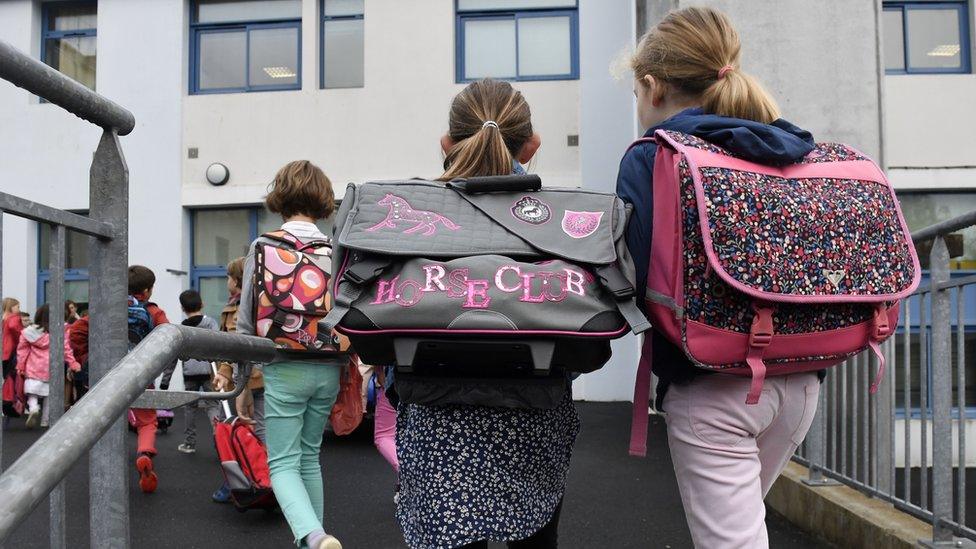French anger at viral bullying of 11-year-olds
- Published

French education officials have condemned an online bullying trend targeting children born in 2010.
The #Anti2010 trend has gained momentum over the past month on the video sharing app TikTok.
Posts on the site have gained millions of views, with users encouraged to form an "anti-2010 police".
Education Minister Jean-Michel Blanquer called the cyber-harassment campaign "completely stupid and against our values".
It has been causing particular alarm among parents because it is targeting 11-year-old children as they start secondary school. There have been reports of it moving offline and into the playground.
Mr Blanquer warned that any pupil behind such bullying would be subject to punishment, and said families could report cases of harassment on an emergency hotline.
"It's an essential part of school life, giving sixth-grade students a warm welcome and integrating them through the generosity of classmates and adults," he said in a letter to school heads, as he urged them to be on heightened alert to the issue.
In a tweet, the education ministry said "harassment and cyberstalking have no place either in our school or society".
The exact origins of the bullying trend are unclear.
Some French reports said it appeared to stem from the popular video game Fortnite. Younger gamers were reportedly accused of failing to follow an unwritten code of conduct, while older players labelled them "Fortkids".
The bullying intensified after the release last month of a song called Pop it Mania, in which young influencer Pink Lily sings: "We are the queens of 2010". The video on YouTube has prompted 400,000 dislikes, with some older children using it as an excuse to target those born in that year.
"In the courtyard, they point the finger at us, shouting 2010! 2010!" one student told the Le Parisien newspaper, adding that more serious incidents such as fights have also emerged.
The main federation of school parents has called on the government to develop a new child protection policy on social networks, saying it is "unacceptable that children are victims of an appeal to hate".
You might also be interested in:
How does social media impact mental health?
- Published10 September 2021
- Published1 September 2021
- Published15 September 2021